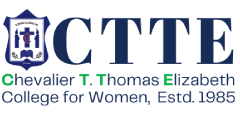This Section details the different courses undertaken, over a period of Six Semesters to complete the Bachelor Of Science – Psychology : Undergraduate Program.
The courses are of the following varieties, Core papers that are mandatory, Electives that can be chosen from list of available electives and Laboratory practicals if applicable. The courses when successfully completed, collectively contribute towards the minimum requirement of awarding a Bachelor’s degree.
Program Outcomes
On successful completion of Bachelor of Science programme, students will develop a scientific temper, critical thinking, problem solving skills, and research attitude for the betterment of the society.
Program Specific Outcomes
By the end of B.Sc. Psychology programme, students will be able to understand human behaviour, describe the ethical principles, conduct basic psychological tests and experiments, and interpret the findings.



